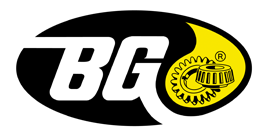281-589-8984 | 12510 Oxford Park Drive Houston, TX 77082
AUTONET TV
Archive for May 2021Good Timing: Proper Timing Belt Replacement Saves Money for Houston DriversPosted May 30, 2021 12:06 PMKnowing how their engine works can help Houston drivers make informed decisions about auto care and prevent repairs to their vehicles. This is especially true when it comes to timing belts. Westside Automotive When Your Air Bag Light Comes On (Illuminated Air Bag Light)Posted May 23, 2021 8:11 AMThere are some dashboard lights you should pay more attention to than others. One is the air bag light. If it's on and your vehicle is in an accident, your air bags probably won't do their job. Automakers began installing air bags in the late 1990's since they were mandatory in the United States, and manufacturers have included them in Canadian vehicles as well. Safety experts say using a seat belt in combination with an air bag gives passengers the best chance of surviving a crash and minimizing serious injury. The air bag warning light takes a few different forms. Some look like a picture of a belted passenger with an inflated air bag from a side view. Or there may be a warning light that says something like "Air Bag," "SRS" (for supplemental restraint system), "Airbag Deactivated" or "Air Bag Off." Different things cause the air bag light to come on. Your vehicle may have been in an accident during which, while the air bags didn't inflate, crash sensors were activated. Some of them may be connected with your vehicle's seat belts. A technician can reset the air bag if this has happened. Fuses can also blow which will cause the air bag light to come on. Another possible cause? A sensor that tells the vehicle's computer whether or not there is someone riding in the passenger front seat may be malfunctioning. Air bags are not for the do-it-yourselfer. They are sophisticated systems that require specialized training and equipment to diagnose and repair. If an air bag light is on, take it to a qualified service repair facility. One more thing: remember that safety experts have designed air bags to work in conjunction with seat belts for maximum protection in accidents. So always wear your seat belt. Westside Automotive Going (Lug) Nuts (Lug Nut Replacement)Posted May 16, 2021 10:48 AMHere's a part of your vehicle you probably don't think about much: lug nuts. They're what fasten your wheels onto your axles. Pretty important, right? In order to take the wheels off your vehicle to service the brakes, rotate the tires, etc., the lug nuts have to be in good shape so a wrench will grip them tightly. Because lug nuts are on your wheels, they are exposed to all the elements of the road (salt, water, grime) and really take a beating. Unfortunately, some manufacturers have made them out of two different metals. Underneath is the working part of the lug nut, made of steel. On top is the decorative (the "good looking") part, made out of chrome, stainless steel or aluminum. After a while, the steel part begins to corrode and expands. That changes the shape of the outer cap, sometimes rounding off the hexagonal edges and making it hard (if not impossible) to either loosen or tighten the lug nuts since the wrench won't fit any more. The reason that's so important is those lug nuts must be functional, especially if you find you have a flat tire somewhere on the road. If the wheel can't come off to be swapped with a spare, it leaves few options, one of which is your vehicle may have to be towed. All that for corroded lug nuts! When you take your vehicle in for service, the technician who works on it keeps an eye on many things, especially if he or she is removing wheels. It's not unusual for your service advisor to recommend you replace several lug nuts at once since some corrode at a different rate than others. Your repair facility is trying to help you avoid driving a vehicle that has wheels that can't easily be taken off when they need to be. The good news is there are one-piece lug nuts that don't have the problem the two-piece lug nuts have, so replacing them could eliminate that from happening again any time soon. And that's not "nuts" at all. Westside Automotive Positive and Negative (Battery Care)Posted May 9, 2021 7:15 AMYou notice when your smartphone's battery starts to go weak on you. It runs out of juice faster than it did when it was new. Bet you pay attention to that pretty closely. Unfortunately, many of us don't pay the same attention to the battery in our vehicles. If your battery got you through the cold-weather months, you might be thinking you're all set until next winter. But you might be surprised to learn this: Hot weather is harder on a battery than cold weather. (Note: we're talking about a conventional vehicle here, not an all-electric, plug-in one.) The way your vehicle's battery holds a charge is that it has chemicals inside it, and they react with each other to produce electricity. A vehicle battery discharges electricity and then needs to be recharged. Unlike your smartphone that you plug in each night to charge, the way a vehicle's battery gets recharged is by using the mechanical energy of the engine. It's a pretty cool system that's been around for a while. An alternator changes the mechanical energy into electricity that then charges the battery. And your vehicle is designed to charge it just the right amount with a voltage regulator. If your battery constantly gets too much voltage, it could stop holding a charge. Another way a vehicle battery loses its ability to hold a charge is when it gets hot. In warmer weather, some fluids in your battery evaporate which can damage some of its internal components. Then, you've got a dead battery. Back to your smartphone for a second, it probably has a little indicator or maybe an app that shows you how healthy it is or how much charge it's holding. Well, your service repair facility has equipment that can test your vehicle's battery for the same things. If that test shows you need a new battery, then it's probably time to replace it. A technician can also check to see your battery is being charged at the correct rate. If you have a battery that is not sealed, a technician can check to see it needs more water added to it. The technician will also make sure dirt or other contaminants aren't acting as electrical conductors and discharging the battery. Plus, your battery's terminals may need cleaning. Most people just forget about their vehicle's battery until there's a big problem with it. Here's one rule of thumb: expect a battery's life to be about 5 years. Just like you wouldn't want your smartphone to leave you without any way to make phone calls or send texts, you wouldn't want your vehicle to leave you stranded with no way to start it, would you? When it comes time to make that new battery choice, your service advisor can offer you some good options, taking into account the climate you drive in, what you use your vehicle for and what your budget is. Hey, your smartphone's battery is all charged up. How about calling your service advisor for an appointment right now?
Automotive Tips from Westside Automotive: Air Conditioning InspectionPosted May 2, 2021 11:35 AMMost auto manufacturers recommend an interval for an air conditioning system inspection. The inspection uncovers leaks, worn hoses and assesses the condition of the other components.
| ||
SearchArchiveDecember 2019 (15)January 2020 (5) February 2020 (4) March 2020 (5) April 2020 (4) May 2020 (5) June 2020 (4) July 2020 (4) August 2020 (5) September 2020 (4) October 2020 (4) November 2020 (5) December 2020 (4) January 2021 (6) February 2021 (4) March 2021 (4) April 2021 (4) May 2021 (5) June 2021 (4) July 2021 (4) August 2021 (5) September 2021 (4) October 2021 (5) November 2021 (4) December 2021 (4) January 2022 (6) February 2022 (4) March 2022 (4) April 2022 (4) May 2022 (5) June 2022 (4) July 2022 (5) August 2022 (4) September 2022 (4) October 2022 (5) November 2022 (4) December 2022 (4) January 2023 (5) February 2023 (4) March 2023 (4) April 2023 (5) May 2023 (4) June 2023 (4) July 2023 (5) August 2023 (4) September 2023 (4) October 2023 (5) November 2023 (4) December 2023 (5) January 2024 (5) February 2024 (4) March 2024 (5) April 2024 (3) | CategoriesSteering (7)Tires and Wheels (25)Windshield Wipers (3)Drive Train (3)Automotive News (5)Brakes (14)Timing Belt (5)Maintenance (23)Auto Safety (3)Safety (2)Fluids (5)Alternator (3)Older Vehicles (3)Trip Inspection (2)Battery (8)Fuel System (21)Service Standards (5)Service Intervals (4)What Customers Should Know (31)Dashboard (2)Transmission (6)Shocks & Struts (3)Cooling System (7)Oil Change (4)Diagnostics (3)Fuel Economy (6)Diesel Maintenance (1)Tires (2)Air Conditioning (4)Parts (2)Exhaust (3)Differential Service (1)Alignment (4)Serpentine Belt (2)Cabin Air Filter (4)Fuel Saving Tip: Slow Down (1)TPMS (2)Headlamps (2)Winter Tires (1)Safe Driving (1)Inspection (2)Keys to a long lasting vehicle (1)PCV Valve (1)Customer Detective Work (1)Check Engine Light (3)Winter Prep (1) | |
Testimonials
Kim H, 04/18/2024
Justin took great care us and was quick to resolve the issues. Thank you so much!












